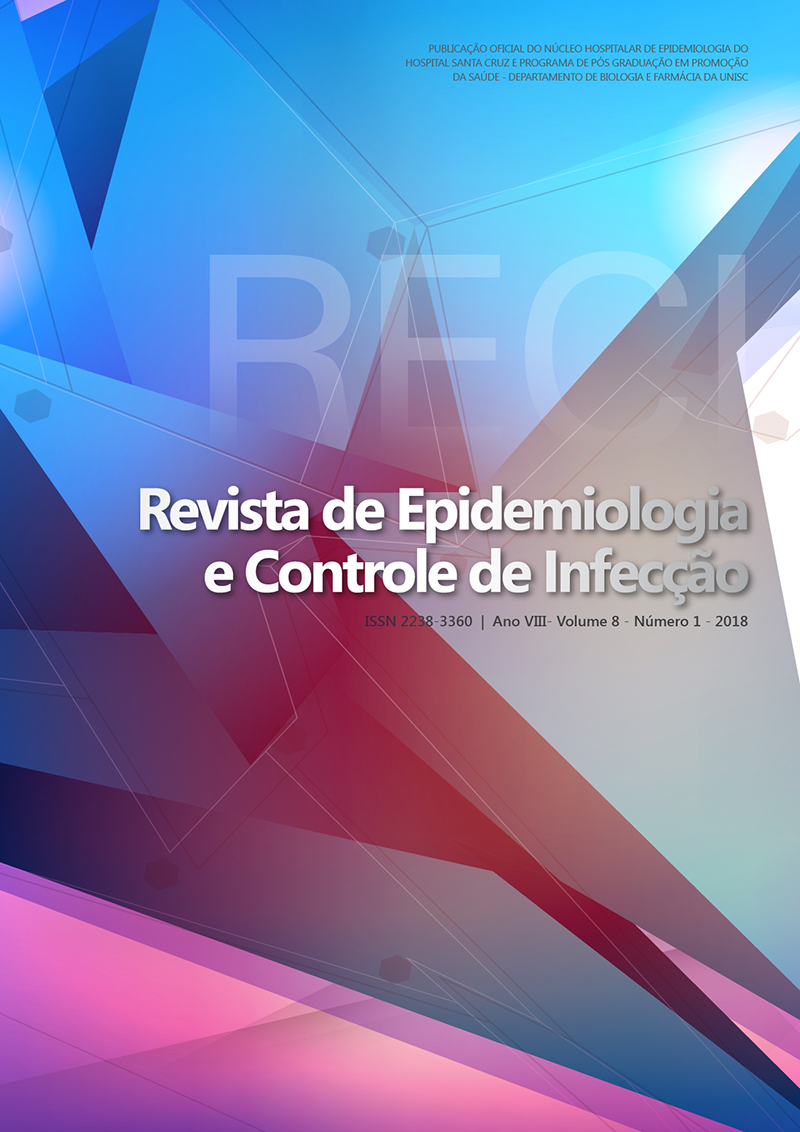Sepsis Management Protocol Implantation at the Emergency Department of the Campos Gerais Regional University Hospital
DOI:
https://doi.org/10.17058/reci.v1i1.9974Abstract
Background and Objectives: A sepsis is a challenge for public health, and the protocols are fundamental for management. The aim of this study was to evaluate the implementation of a care protocol for the management of sepsis and to characterize the patients submitted to clinical evaluation. Method: Descriptive cross-sectional study performed at the Emergency Service (EC) of the Campos Gerais Regional University Hospital. The protocol was elaborated from the literature, focusing on adult patients with criteria of systemic inflammatory response syndrome (SIRS), sepsis, severe sepsis and septic shock, being described by flowchart. They were part of the study of the patients attended in the EC between july and september of 2016 submitted to the protocol (n=50), being collected by electronic medical records and analyzed descriptively. Results: For the implementation of the protocol, the training was carried out by the EC staff, for acceptance and alignment of knowledge regarding the conceptual, technical and logistical aspects. The protocol consists of 3 steps: initial approach to the patient with sepsis; package 3/6 hours - hemodynamic optimization and optional package - optimization of central venous oxygen saturation/ central venous pressure. Patients submitted to the protocol were mean of 66 years (SD=±13.71), most of them were 56% women, presented hypotension (96%), creatinine elevation (76%) and leukocytosis (70%) among SIRS, achievement immediate exams (100%), initiation antibiotic therapy (74%) and death (72%). Conclusion: an implementation of the protocol subsidized the precocious identification of patients, qualification of care, operational experience and as characteristics of patients consistent with severe sepsis.Downloads
Published
How to Cite
Issue
Section
License
The author must state that the paper is original (has not been published previously), not infringing any copyright or other ownership right involving third parties. Once the paper is submitted, the Journal reserves the right to make normative changes, such as spelling and grammar, in order to maintain the language standard, but respecting the author’s style. The published papers become ownership of RECI, considering that all the opinions expressed by the authors are their responsibility. Because we are an open access journal, we allow free use of articles in educational and scientific applications provided the source is cited under the Creative Commons CC-BY license.


